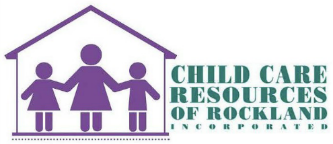Group Size
Group size has a positive impact on the overall quality of early and school-age care and education programs and the experiences that children have in those programs. Smaller group size is important in maintaining proper supervision, quality care and enough one-on-one attention for each child in care.
Ratio
Similar to group size, the adult to child ratio also has a positive impact on the overall quality of a child's experience in care. Consult the descriptions below to find out more about adult to child ratio for the different types of child care.
Health and Safety
A major concern of parents when they drop their children off at a child care program, is the safety of their children in the hands of the caregivers. Some things to look for that indicate the program is safe and healthy are working smoke detectors, toys and equipment that are in good condition, food prep areas are separated from the restrooms and diapering areas. The daily routine should also include proper hand-washing and diapering procedures, and direct competent supervision of children at all times. Please note that this is not a full, comprehensive list of items to consider for Health and Safety. Please talk with our Resource and Referral Coordinator for other items you should look for by calling (877) 425-0009 x0.
Family Involvement
Parents and families have the most direct and lasting impact on a child. When parents are involved, children are more confident, and feel more comfortable, especially in a new setting. Choosing a program that welcomes parents to come in during the time the child is in care is the first step in getting to know the "important people" in a child care program. Know what is expected of you, and what you can expect from a program. Volunteer to help out at the program, read to the children or go on a field trip. Always keep the lines of communication open. New York State law requires providers to give parents the opportunity to discuss issues related to their children. These opportunities must occur at the time of enrollment and as frequently as needed thereafter, but at least annually. It is the parent's right to know what is happening while their child is in a child care program. Do not hesitate to ask questions.
Caregiver Education and Turnover
Caregivers in child care centers, school-age care programs and registered/licensed family/group family child care programs must receive a minimum of 30 hours of educational training every two years, 15 hours of which must be completed during the first six months of employment in a center or school-age care program. In family/group family child care programs, providers must complete 15 hours of training during the first six months of program registration or licensing.
Accreditation
Accreditation is a voluntary system by which programs measure themselves against a national set of standards. Going beyond minimum licensing standards, accredited programs make a commitment to excellence. Caregivers in accredited programs take part in on-going training. They are more likely to understand children's needs at different ages, plan appropriate activities, interact with children in warm and stimulating ways, and provide positive guidance for children rather than harsh discipline.



